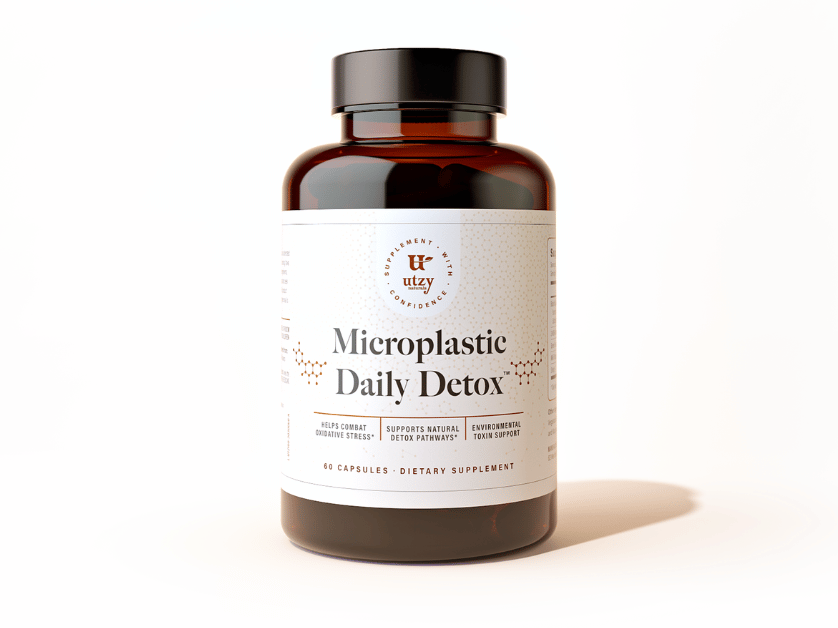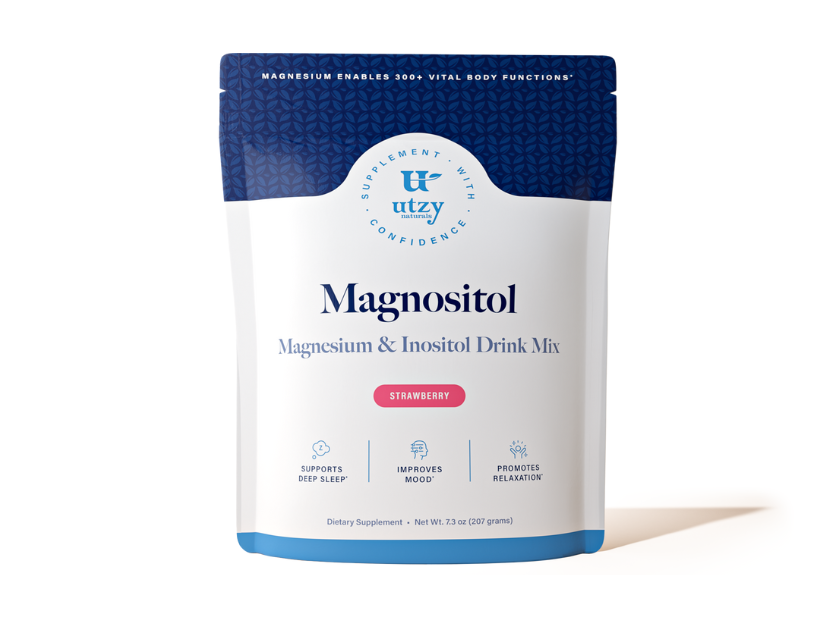shop
learn

The Nutrient Dream Team: Vitamins K2 and D3
February 24, 2021 6 min read
No human is an island and the same is true of nutrients.
While there’s constantly clamor out there as to which nutrient will supposedly cure all your woes, your body actually needs a variety of nutrients, working together, to keep you in optimal health.
The symbiotic and synergistic relationship of vitamins K2 and D3 are a great example of that, if not one of the best examples.

Synergistic Benefits
Synergy is far more than a word your boss can’t stop overusing in board meetings. It means working together to create something better. In this case, vitamin K2 and vitamin D3 work synergistically to balance the scales of each other’s duties.
In fact, vitamin K2 and vitamin D3 are part of a nutrient powerhouse squad along with calcium, magnesium and zinc. All of these nutrients need to be present for you to live your best and healthiest life. Keeping optimal levels of all these nutrients is key for bone, cardiovascular, mental and neurological health; oh, and blood clotting.
Vitamins K2 and D3 individually and together are showing promise in clinical research in relation to helping with a variety of health conditions.
Those are some substantial health benefits. Let’s dig deeper into the combine health benefits of vitamins K2 and D3 from dietary supplements and dietary intake.
The Different Forms of Vitamins D and K
Both vitamin D and vitamin K, in any form, are fat soluble vitamins. That means they need fat in order to be absorbed and utilized. There are 4 fat soluble vitamins - A, D, E and K. With the exception of D, there are a bevy of food sources of each of the fat soluble vitamins. Vitamin D is the outlier as the sunshine vitamin which is found in some amount in some mushrooms, which ironically grow in the dark.
Vitamin D is made when sunlight comes into contact with your skin. Inside your skin there is a compound made out of cholesterol that is provitamin D3. This compound is activated by UVB rays. Once made in your skin, the vitamin D is sent to the liver where it’s converted into a form that you can use for over 200 enzymatic functions that play a role in everything from bone health, hormone regulation, nutrient absorption and disease prevention.
When searching for vitamin D supplements you’ll notice that many say vitamin D3. On occasion, you’ll stumble across some supplements that say D2. Both are forms of vitamin D and nearly every bottle that exclusively says vitamin D on the front is vitamin D3. Double check the nutrition facts panel to be sure.
Vitamin D3 is cholecalciferol, the animal-derived version of vitamin D. Vitamin D2 is ergocalciferol, the plant based version of vitamin D. D3 is better absorbed and utilized by your body for one reason - you’re an human. Vitamin D2 is well and good for vegans to take, but know that it’s not absorbed as well, so a higher dosage may be required.
Vitamin K primarily has 2 forms - K1 and K2. Vitamin K1 is phylloquinone and is found in green leafy vegetables. Deriving the phyll from chlorophyll the pigment that makes green plants green. Vitamin K2 is menaquinone and is found in some animal-derived products, certain fermented foods and synthesized by bacteria. K2 derivatives depending on the length of the attached side chain compound. What vitamin K1 and K2 have in common is a base quinone ring.
MK-4 and MK-7 are the most common and effective types of vitamin K2 supplements. The number at the end refers to the length of the side compound. Recent research is finding that MK-7 is the form best absorbed and utilized by your body[*]. Great news for vegans and vegetarians, MK-7 can be made from fermented soybeans and chickpeas, with MenaQ7® being the best supplemental form of MK-7.
A frequently discussed sources of vitamin K2 is that found in a Japanese fermented soy product called natto. Natto has a very distinct appearance, smell, taste and texture that’s not for everyone. Although the health benefits of natto are amazing, it’s an acquired taste. So you’ll notice a lot of articles mentioning it, but not where to purchase and how to enjoy.

Teamwork Makes the Dream Work
Bone and Cardiovascular Health Synergy
Vitamins K2 and D3 work in harmony to keep your blood vessels and supple while keeping your bones strong[*][*]. These 2 vitamins work to make sure that calcium is deposited in your bones, rather than your arteries.
In order for this to work, you must consistently have healthy amounts of vitamin K2, vitamin D3, and calcium. If any of these are out of balance than the exact opposite happens. That is why calcium supplementation without both vitamins K2 and D3 has been proven to be dangerous to your health.
When calcium is put in your bones, instead of in your arterial walls or as plaques in your arteries the results is strong, healthy bones and pliable arteries. Long-term that translates to reduced risk of bone and heart diseases.
Support Healthy Weight
Vitamins K and D are both associated with supporting healthy inflammation levels, the number 1 cause of all health woes, especially weight problems. Vitamin D is involved in all hormone synthesis and regulation, which in turn can affect your weight.
Multiple studies have shown that the lower your vitamin K and D levels are, the harder it is to lose weight.
These two vitamins work together to make sure you properly absorb and utilize each other. Additionally they work together to regulate your hormones and the absorption of calcium, magnesium and zinc. This dynamic duo keeps your pancreas, thyroid, cardiovascular system and everything in between in check to help you lose weight.
If you’ve been struggling to lose weight it could be that you need to take a closer look at your vitamin K and D levels. If you find that you have low levels, taking a Vitamin K2 + D3 supplement is a great way to boost your levels.
How to Buy and Store Vitamin K2 and D3 Supplements
No one likes to take a lot of supplements. Vitamins K2 and D3 are clearly important, as is getting them in proper amounts along with calcium, magnesium and zinc. Our high stress society paired with indoor lifestyles and toxic food system make vitamin K2 and D3 deficiency common.
Look for formulas that contain both vitamin K2 + D3. Additionally, eat your green leafy vegetables and getting 5 to 10 minutes of sunshine a day, unless otherwise recommended by your doctor.
At Utzy we created a premium K2 + D3 formula, it contains the doctor recommended dosages of each vital nutrient. Made with MenaQ7, the most researched form of vitamin K2.
Take the daily dose recommended on the supplement or in accordance with your healthcare professional’s advice, which may vary significantly if you have a severe vitamin D deficiency.
Store per the supplement’s recommendations and in a place you’re likely to see the supplement daily so that you take it. Supplements only work if you take them.
Safety Concerns of Vitamins K2 and D3 Supplementation
There are a lot of misconceptions about the safety of supplementing with these vitamins based on outdated research on the nutrients. It was hypothesized incredibly large doses could cause calcification in soft tissue. However, the amounts of these nutrients it would take for this to occur is basically impossible for a human to consume.
Do look for supplements with a third party certification, take the recommended dosage and confirm with your healthcare provider that it’s not contraindicated for any existing health condition and/or medication you may have.
Mega high doses of calcium is definitely a bad idea and even worse without vitamins K and D. High doses of calcium supplementation are associated with kidney stones and calcium deposits in arteries. Always discuss calcium supplementation with your doctor and avoid supplements that don’t contain vitamins K and D.
Vitamins K2 & D3: The Dream Team
As you can see, both vitamins K and D are important for optimal cardiovascular and bone health. Speak with your healthcare provider to see where your vitamin K and D levels are.
If they’re low, make sure to discuss both a dietary plan and supplementation options.
_______________________________________________

Sheila Amir is a health and nutrition writer in love with Durham, North Carolina and the Sheila of NutritionSheila.com. After spending several years as a nutritionist, she turned in her office keys for laptop life to research, write and present while on the go. When she puts the laptop down she's either on her yoga mat or out enjoying life in the Bull City.
Leave a comment
Comments will be approved before showing up.
Also in Health
Subscribe
Sign up to get the latest on sales, new releases and more …
Join the Utzy Naturals Club!
Sign up and get the latest on sales, new releases, and more...





